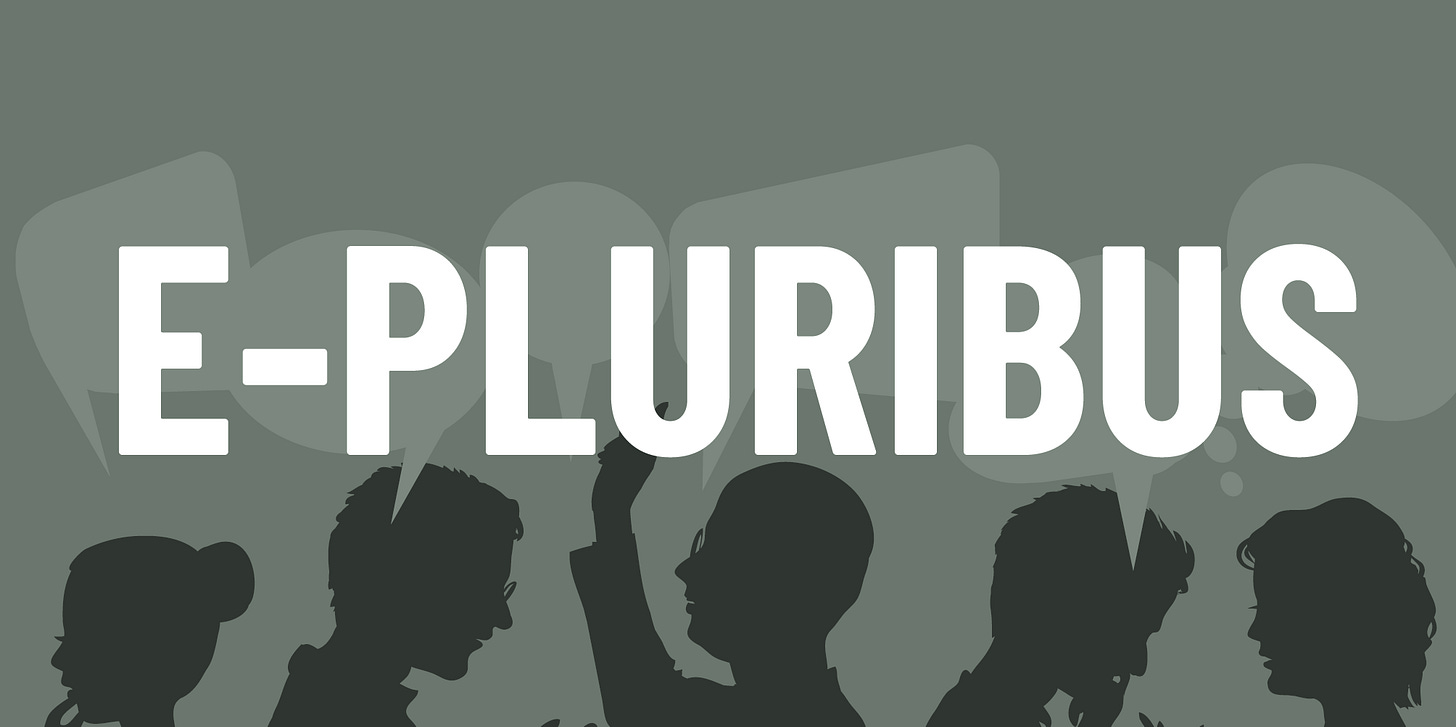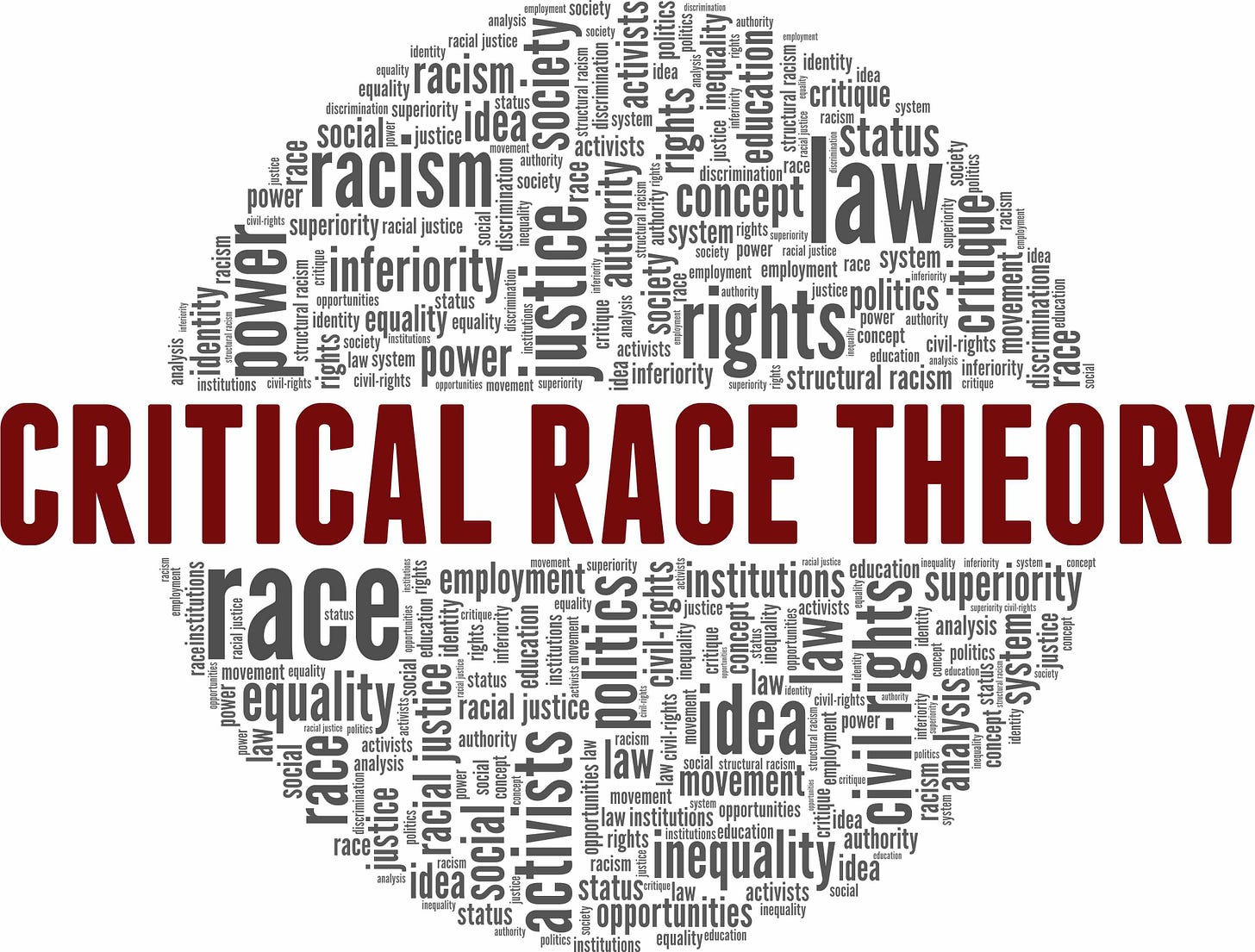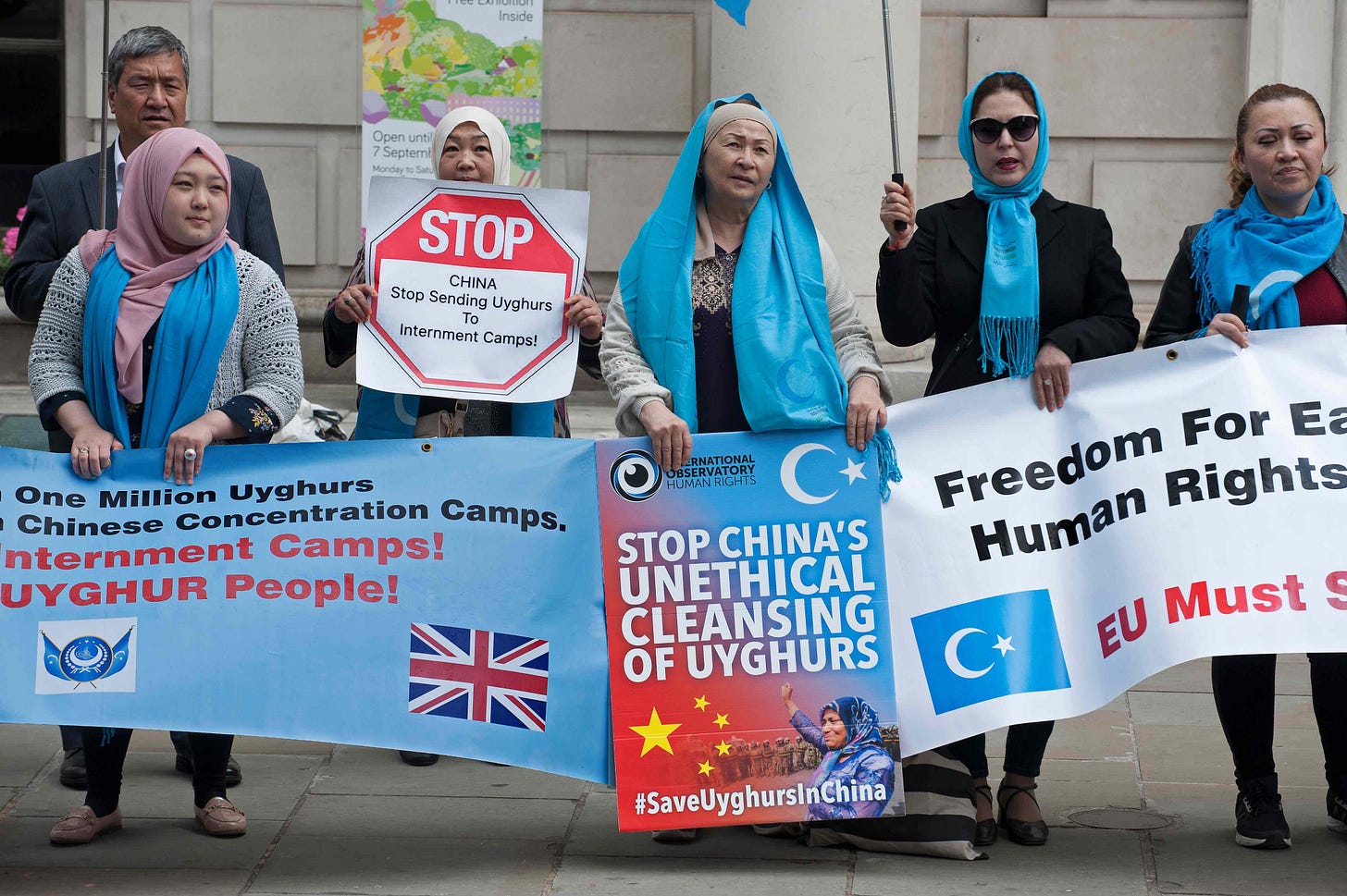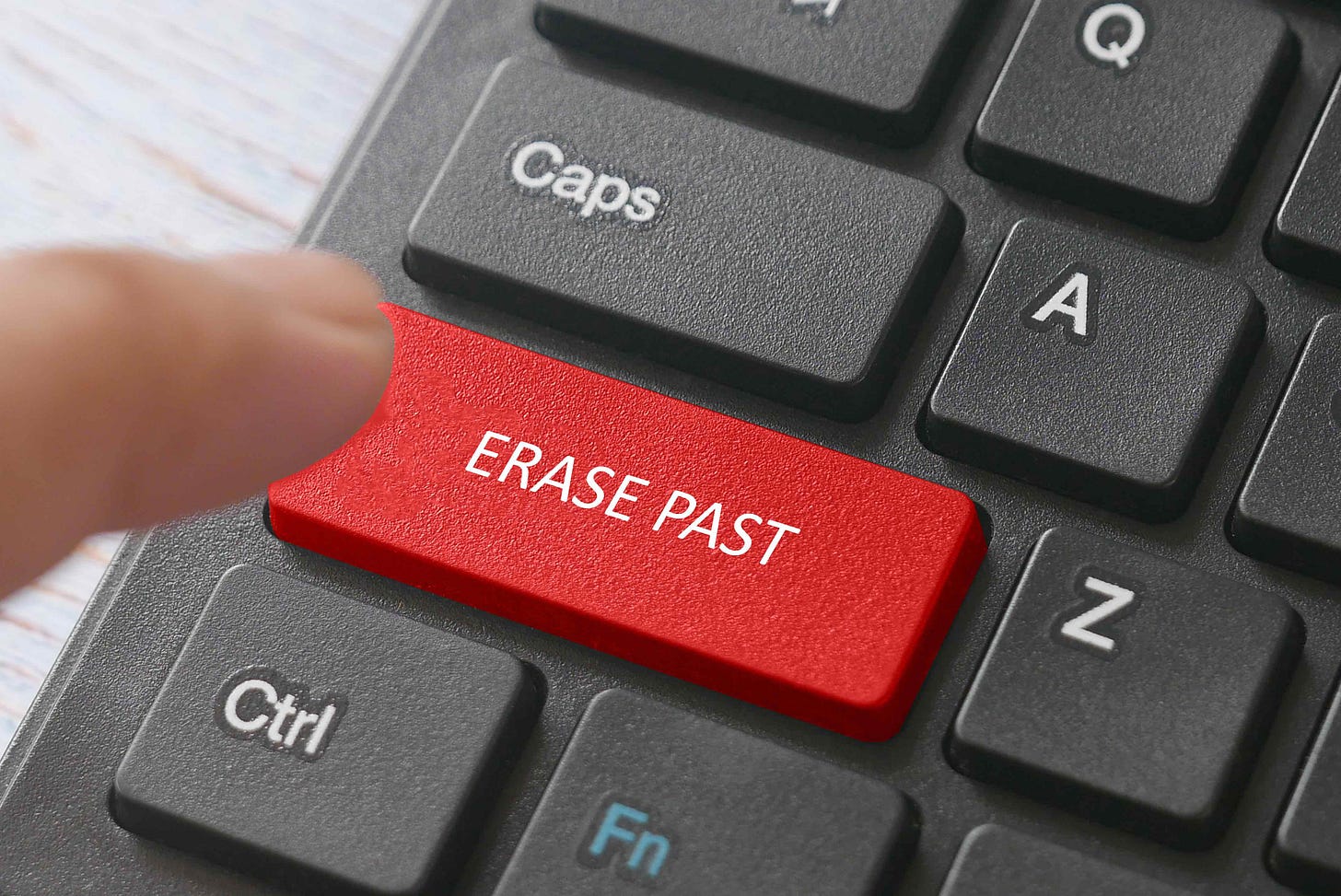E-Pluribus | August 2, 2021
Critical race theory and its real-life impact, an American company bowing to China's Orwellian demands, and when history is censored.
A round up of the latest and best writing and musings on the rise of illiberalism in the public discourse:
Ari Blaff: This Is What Critical Race Theory Looks Like
While the textbook definition of Critical Race Theory (CRT) is hotly debated, Ari Blaff argues at National Review that the impacts of it are hard to miss. CRT’s preference for dividing individuals along racial lines is impacting not just universities where the theory marinated but is having a broader effect on society at large.
When all you have is a hammer, all the world is a nail; so, too, when one is devoutly anti-racist, all the world is racist.
This kind of treatment has become increasingly standard fare for students, particularly at elite universities. Following the murder of George Floyd and nationwide Black Lives Matter (BLM) protests last year, educational spaces are now confronting calls for a “racial reckoning” with the past. These “History Wars” have thrust once-esoteric academic debates into the public square. The stickiest of these is “critical race theory” (CRT), which views white supremacy as inextricably baked into the American pie.
Originated among legal scholars in the 1990s, CRT has become a catch-all term into which anti-racism, intersectionality, whiteness studies, and other progressive shibboleths have been thrown. It was brought to the mainstream’s attention by Christopher Rufo of the Manhattan Institute, and many on the left lay the blame at his feet for setting off a racial powder keg: “The proof lies offline in the new moral panic he helped instigate,” Sarah Jones of New York magazine writes. Critics view Rufo’s initiative as a crude crowbarring of various distinct theories under the CRT umbrella, but he has firmly countered such claims.
Regardless of what term one wishes to use, there has been a tangible shift, with CRT bleeding out of academic and cultural arenas and now corroding everyday discourse. “There is no in-between safe space of ‘not racist,’” anti-racist luminary Ibram X. Kendi writes. “The claim of ‘not racist’ neutrality is a mask for racism.” Accordingly, if you disagree with Kendi’s assessment of America or race relations, what does that make you?
Read it all.
Suzy Weiss: Bearing Witness to China’s ‘Orwellian Dystopia’
That the Communist Chinese government would try to suppress documentation of its oppression of its Uyghur population is hardly shocking, but grovelling complicity by a venerable American company such as Kodak is. Writing at Bari Weiss’s Common Sense Substack, Suzy Weiss interviews the photographer whose photos were unceremoniously removed from Instagram in deference to the wishes of the Chinese government with a commitment from Kodak to “keep ourselves in check and correct ourselves.”
The CCP can’t stand hearing the voice of dissonance. That’s why they’re tightening their grip on Hong Kong. They can’t bear the idea that Hong Kong has a successful democracy in a Chinese society. They can’t stand the idea that Taiwan is a successful country, or that it did a better job of fighting COVID while still remaining democratic.
Xi Jinping can’t handle anything that casts a shadow on the only official religion, which is Communism, or on the reign of the CCP. The goal is to turn everyone into foot soldiers for the new China. To have them bow to the CCP and to Xi Jinping. They don’t want anything to stand in the way of the society they’re trying to create.
[…]
Walk me through Kodak taking down your images. One day, they’re there. The next, they’re not. Did anyone from Kodak notify you in advance? Did they apologize?
When I was trying to promote my book I was emailing some people and posting in some photography Facebook groups. Kodak’s social media manager saw one of my posts, and we started emailing. He made the post on their Instagram, and we messaged a bit, and I thanked him. One or two days later, I reached out again because there was some heat in the comments. We laughed about it, and he said he loved my work and that it was no problem.
The next day, the post was deleted, and the day after that they put out that statement. Apparently, upper management made the decision, because they got scared. I haven't talked to the social media guy since.
Read it all here.
Matt Taibbi: Meet the Censored: Hitler
The reliance of social media companies on artificial intelligence to moderate content has produced mixed results and plenty of backtracking once humans intervened, but the removal of a 100 year old historical event is disturbing nonetheless. Even in an era when sensitivity to offense is running high, censorship of an historical event should be a bridge too far from any perceptive. Matt Taibbi interviewed the Instagram user whose post about Hitler’s rise in the Nazi party was deemed to violate “community guidelines”:
TK: What happened yesterday?
Marotta: The purpose of this account is to provide historical education by reporting events from 100 years ago in real time. With that said, we espouse no extremist nor hateful views, even if they were expressed 100 years ago. 100 years ago yesterday, Adolf Hitler was made Führer of the Nazi Party. We reported on this story with the same caption for both Twitter and Instagram, explaining that Hitler had become Fuhrer and a little background information. There was no hateful imagery or view espoused in reporting on this objective fact. Within 20 minutes, Instagram took down the photo of Hitler, with the note that the post promoted hate speech and extremism. Given that it was literally a photograph of Hitler with the caption that he was made Führer, I appealed the decision. They struck it down once again.
TK: Do you think this was a human being making a decision, or a machine?
Marotta: This appears to be a result of an algorithm failing to distinguish between images used in an educational context, and images used in a hateful context. I believe that no human reviewed my case, and that the algorithm blindly struck it down because of the word “Hitler” and a depiction of the man.
TK: What do you think the rationale behind this kind of moderation is? If you have any idea, what’s your opinion on this brand of speech regulation?
Marotta: I believe that Instagram does this to protect their advertising viability, and because they cannot moderate each and every case, an automatic algorithm is applied. However, this serves as a detriment to historical education. I am Jewish, and Holocaust education is vital to my beliefs system. If I cannot provide context on Hitler’s rise to power, then Holocaust education becomes difficult.
Read the whole thing.
Around Twitter
ISWYDT: Peter Boghossian on “Woki-leaks”
Covid-contrarian/curmudgeon Alex Berenson has finally been suspended from Twitter for misinformation, and even Robby Soave of Reason who is very leery about social media censorship is having a hard time feeling bad about it:
Finally, Jesse Singal on Reddit’s response to Katie Herzog’s recent piece (last Friday’s e Pluribus, third item) on medical school wokeness:














